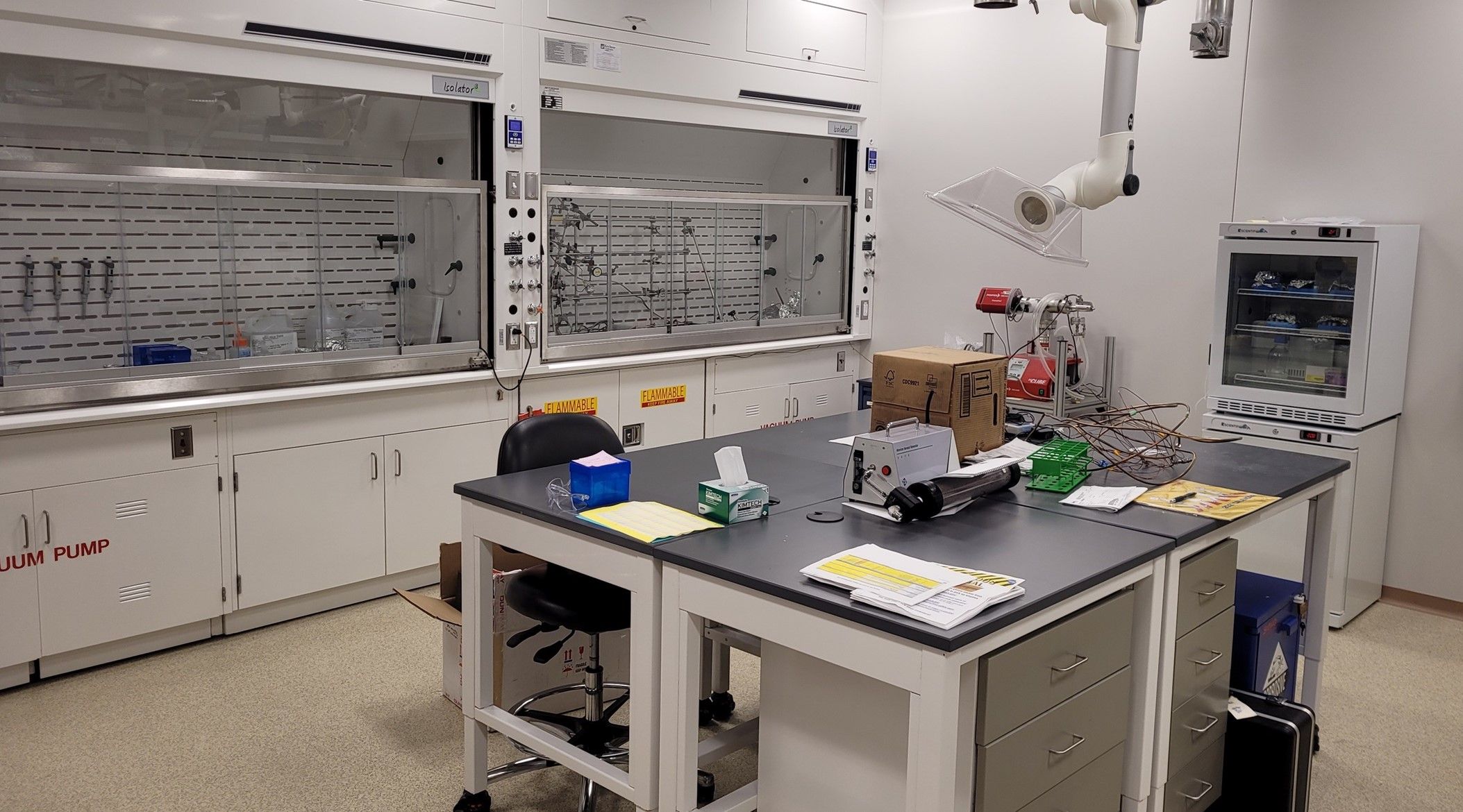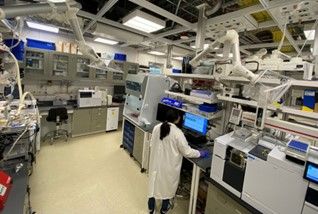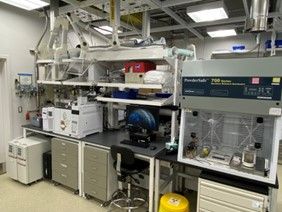Organic Processing and Analysis Laboratory
Organic Processing and Analysis Laboratory
The Organic Processing and Analysis Laboratory (OPAL) is hosted within GSFC’s Planetary Environments Laboratory (code 699). OPAL focuses on understanding the sources and processes that influence the detection and nature of organic materials in atmospheres, rocks, sediments, and ice, particularly those deemed to be analogs for Mars and ocean worlds such as Titan. Key topics of lab and field study include the synthesis of organics in planetary environments, effects of ionizing radiation on organics, organic-mineral interactions, organic molecular contamination control, technology developments for life signature detection, and life-detection science strategies.
Organic Processing and Analysis Laboratory - Equipment
The OPAL lab includes two large chemical fume hoods that host experimental simulations relevant to Titan: impact crater environments and photochemical aerosol formation. There is a custom gas mixing system and a refrigerator/freezer storage unit that houses simulated crater samples (4°C, -20°C). OPAL gas and aerosol instrumentation includes a TSI Atomizer Aerosol Generator (3079A), a TSI Diffusion Dryer (3062), a TSI Hand-held Condensation Particle Counter (3007), and a Pfeiffer Prisma RGA.

Titan Simulation Lab Area

Cold storage for simulant samples (4°C and -20°C)
OPAL GCMS instrumentation used to support studies include pyrolysis-mass spectrometry (i.e. evolved gas analysis, EGA) and gas chromatography mass spectrometry (GCMS). Instrumentation includes two Agilent 7890A-inert XL 5975C GCMSs with flame ionization and electron capture detectors, one field portable Agilent LTM-5875T GCMS, and one Agilent 8890A-7000D with hydrogen carrier gas (convertible to a 7010 with HES source under helium carrier gas) for GC-triple quad mass spectrometry. Four Frontier laboratories PY-3030D pyrolizers and autosamplers support analyses. Support facilities include a hydrogen generator and gas purifications (not shown). Analyses often include inline sample processing, such as inert pyrolysis, low pressure hydropyrolysis (with H2), derivatizations, and thermochemolysis/pyrolysis or thermally assisted hydrolysis and methylation (THM) using alkaline reagents at a variety of temperature and conditions.


GCMS Instrumentation
Organic Biogeochemistry Laboratory - People

Jennifer
Eigenbrode
Lab Manager and Lead for OPAL GCMS instrumentation

Melissa
Trainer
Lead of OPAL gas and aerosol instrumentation
Current High School, Undergraduate, Graduate Students, and Post-Bacs
- Sarinah Wahl (2022- )
- Alex Mikulich (2020- )
Alumni Staff
- Ross Williams (2018-2021)
- Greg Wong (2018-2019)
- Amy Williams (2014-2015)
- Melissa Floyd (2010-2014)
- Dominic Tobler (2009)
Alumni High School, Undergraduate, Post-Bacs., and Graduate Students
- Max Craddock (2019)
- Victoria DaPoian (2019-2021)
- Madeline Roach (2017-2019)
- Melissa Ugelow (2017)
- Allison Fox (2017)
- Thomas Gautier (2014-2016)
- Christophe Mathé (2016)
- Allison Wold (2016)
- Alex Spigler (2015)
- Chase Duffy (2015)
- Mary Beth Wilhelm (2012-2014)
- Hannah Bower (2012-2013)
- Margaret Marvin (2012)
- Joshua Sebree
- Stephan Bien-Aime (2011)
- Stamatina Hunter (2010)
- Svetlana Shkolyar (2010)
- Charlotte Carlstrom (2008)
- Heidi Owens (2007)



